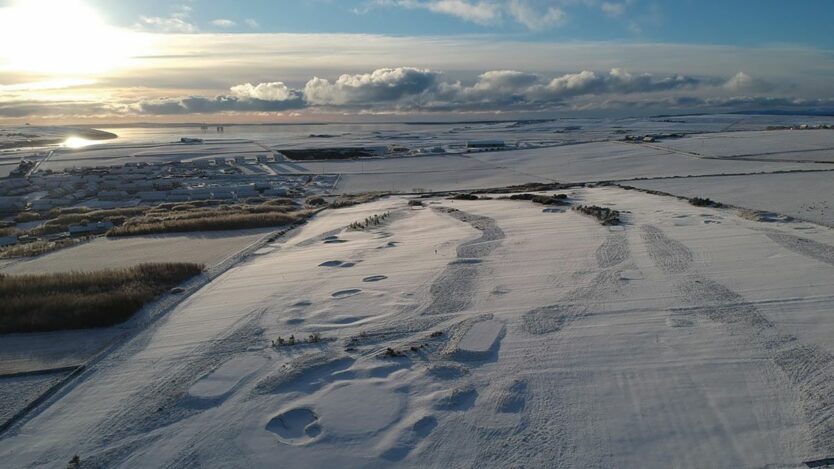The new year has got off to a freezing start, with plummeting temperatures making working conditions difficult for those involved in course maintenance.
The cold snap since the turn of the year has brought the issue of health and safety into sharp focus for golf clubs across the country.
With many experiencing snowfall and practically no venue left untouched by the frosty conditions, it has been a testing start to 2025 for greenkeeping teams in particular.
The demands on those involved in turf maintenance to produce playable conditions year-round means they are left to ply their trade in all weathers, including those sub-zero temperatures that have been so prevalent of late.
While the average greenkeeper might laugh off any suggestion that cold weather would keep them from fulfilling their duties, there are potentially serious health and safety considerations that Golf Club Managers and their greenkeeping staff should be aware of.
Five things to remember when the cold weather hits…
- Assess the risks and identify the hazards. For example, slips and trips become a significant hazard, with icy conditions and potentially obscured obstructions. Keep pathways clear and gritted where possible.
- Warm clothing is essential for staff working outdoors. Providing additional layers and items of clothing like hats, gloves and waterproofs could make all the difference.
- Shelter is vital and staff should have access to a warm indoor space with facilities to get clean, dry and make a hot drink.
- Monitor the physical health of your staff and make sure they know how to recognise the early signs of potential problems. Hypothermia and frostbite are not beyond the realms of possibility.
- Mental wellbeing and a person’s ability to concentrate can also be impacted by cold weather. Be sure to check in with your staff and assess their capacity to carry out tasks.
Mo Bah, Course Manager at Meyrick Park, leads a team of five at the Dorset venue and, despite the pressures of keeping the course in the best possible condition, he never loses sight of his ‘people first’ policy.
“It’s important for us and a matter of professional pride that we keep the golf course open and in good condition,” he said. “We only have a small team here and when you’re having to deal with bad weather, it doesn’t make it any easier.
“Whether it’s frost or snow or rain, we’ll be out there getting jobs done to make sure people can go out there and play golf.
“What I don’t do is forget about the most important thing, which is making sure the team is happy and healthy. There’s nothing more important than the safety and wellbeing of the team.”
While it is unavoidable that course maintenance work will sometimes be carried out in harsh weather, Mo underlined the vital need to assess the conditions and make special provisions where necessary.
“There will be days when you’re out there in the cold, wet and sometimes snow for hours,” he said. “But you have to make sure it’s safe to be out there.
“Firstly you need to know the conditions yourself and make sure your team are fully aware. You need to check in with your team to make sure they’re okay. Give them a bit of extra time in the morning to get a cup of tea and warm up before they go out there.
“Don’t leave people out for too long, listen to them if they say they’re too cold or need a break from it. There are always things to get on with in the sheds where it’s warm and dry.
“You can’t get anything done without the support of your team, and that starts with you supporting them by making them feel safe and valued.”
The Advanced Management Programme’s Health and Safety Certificate will be delivered on February 12-13 and is open for booking now.
This IOSH Managing Safely course includes:
- Introducing Managing Safely
- Assessing Risks
- Controlling Risks
- Understanding your Management and Legal Responsibilities
- Identifying Hazards
- Investigating Accidents and Incidents
- Protecting our Environment
- Written Examination and Practical Assessment



